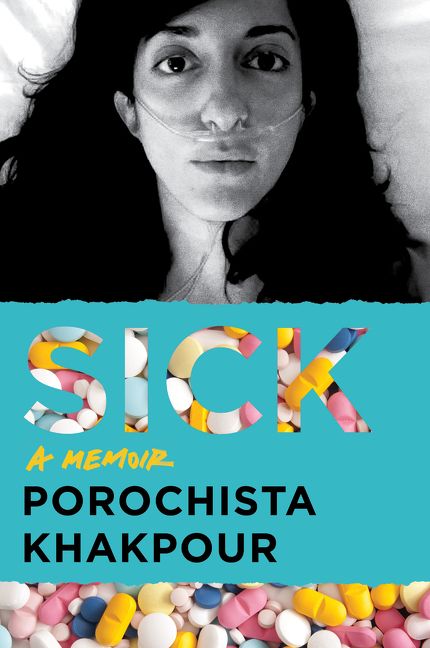

When I started writing it I had a few jokes. “Sick” feels like a mystery, with readers wanting to discover when and where you contracted the disease and when you will be diagnosed. There’s lots of statements that might seemingly contradict themselves in this book, but I feel like they’re the honest truth of the different stages and the complexity of Lyme, which is a constant up and down. To me, I would do anything not to have this.

I can’t tell you that today I feel like, “Yay, I keep myself sick.” I feel really plagued. Someone with chronic illness and disability - ironically Lyme disease being primarily associated with affluent white people in the Northeast where I was living. It’s funny, I was really tempted to take out that line, “I keep myself sick.” That was the thought I had at one point - wow, of all my identifiers the one that seems like Americans can be most at peace with is maybe this one. In some ways I keep myself sick.” When you finally received your diagnosis, did you feel like you’d found the sense of place that you were looking for? In the book, readers follow your journey trying to understand your illness and your relationships with men who are trying to fix you, and a search for balance of career and home. And certainly the first three years of life in this world were very traumatic for me and so I don’t feel weird about talking about that. I mean that could be like, there’s some idea, there’s a chance I got this and other illnesses in early childhood, but whatever it is, I mean Lyme attaches to whatever your vulnerabilities are. I wanted to talk about the fact that I don’t know when this illness came to me, but I’ve always had a feeling of unease in my body and all sorts of dysmorphia, but that could mean a lot of things. I wanted to be as honest and transparent as I could. I would’ve been really reluctant to make that connection because I would’ve been so defensive about the illness itself, and it took me so long to get taken seriously. If I wrote this when I first got diagnosed, I wouldn’t have had the strength to talk about PTSD in the way that I do here. Those vignette sections that you see in there were added later, parts that I felt maybe weren’t explained in the book. With your illness, you write that you will “never be at home, perhaps not even in death.” This is a chilling statement. You open the book with an interlude titled “On the Wrong Body,” where you explain that you’ve never been comfortable in your own body.


she spoke with The Times via phone about her writing process and how “Sick” has ultimately saved her life. As Khakpour visits Los Angeles during her book tour - she’ll be at the Last Bookstore Thurs.


 0 kommentar(er)
0 kommentar(er)
